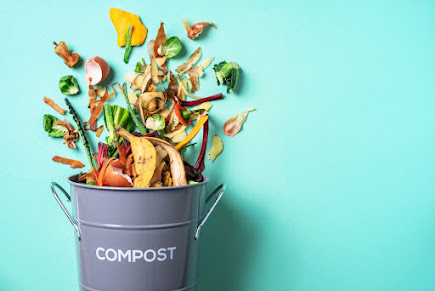WHY COMPOSTING IS IMPORTANT
I recently purchased my home composter. Prior to purchasing I did some research on how composting support sustainability. Below are some of they key reasons home composting helps support sustainability.
1.
Reduced Waste: Composting at home
allows individuals to divert organic waste from landfills. Food scraps and yard
waste make up a significant portion of municipal waste, and when these
materials break down in landfills, they produce methane, a potent greenhouse
gas.
2.
Soil Enrichment: Compost is a
nutrient-rich soil conditioner. When added to soil, compost enhances its
fertility, structure, and water retention capacity.
3.
Carbon Sequestration: Composting organic
materials helps to sequester carbon in the soil. This is important for
mitigating climate change, as it prevents the release of carbon dioxide and
other greenhouse gases that would occur if organic matter were left to
decompose in landfills.
4. Water Conservation: Compost improves soil
structure, allowing it to retain more water. This is beneficial for water
conservation, as well-hydrated soil requires less irrigation. In regions facing
water scarcity, composting can contribute to more sustainable water use in gardening
and agriculture.
5.
Biodiversity: Healthy soil, enriched
with compost, supports a diverse ecosystem of microorganisms. These
microorganisms contribute to soil health, nutrient cycling, and overall
biodiversity.
6.
Energy Savings: Home composting reduces the need for centralized waste
collection and processing, which requires energy for transportation and
facilities.
In summary, home composting plays a vital role in reducing
waste, enriching soil, mitigating climate change, conserving water, promoting
biodiversity, saving energy, and educating individuals about sustainable
practices.





Comments
Post a Comment